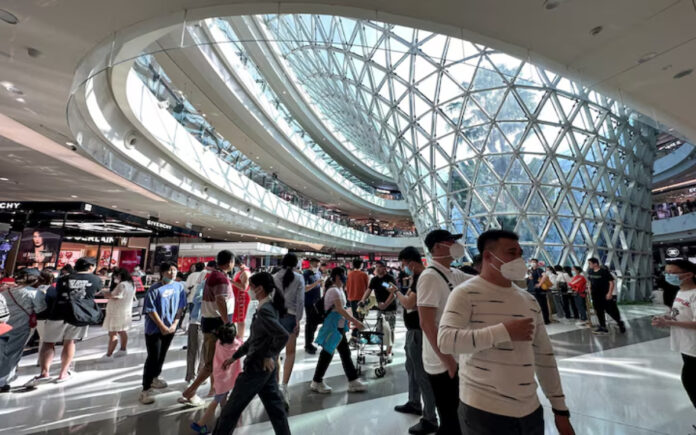Beijing: Hainan, China’s island province renowned for its luxury shopping experience, has faced a significant setback, with duty-free spending plummeting by 29.3% in 2024. This decline is attributed to a weak economy and a marked decrease in domestic visitors, as global luxury brands, including LVMH and Kering, continue to operate in the region.
According to local customs data released on Thursday, shoppers spent 30.94 billion yuan ($4.24 billion) on duty-free goods in 2024, a sharp drop compared to 2023. The number of visitors to Hainan also decreased by 15.9%, from 6.756 million in 2023 to 5.683 million in 2024.
While this downturn does not significantly impact China’s overall economy, it represents a blow to foreign luxury brands that were banking on a post-pandemic surge. These brands had seen a boom in sales, with figures tripling from 2019 to 43.76 billion yuan in 2023, partly due to a policy implemented in 2020 that raised duty-free purchase limits at Hainan’s 12 duty-free malls.
Also Read | Apple to Pay $95 Million After Siri Accused of Recording Private Chats
This slump in sales also poses challenges for future plans to develop the entire island into a duty-free shopping zone by 2025. The proposed expansion aims to allow brands to run their own duty-free stores, bypassing the need for partnerships with local players like the China Duty Free Group. This initiative hopes to attract Chinese consumers away from rival duty-free shopping destinations like South Korea’s Jeju Island, while also helping stimulate consumption in China’s southern region.
Also Read | After Four Decades, Toxic Waste from 1984 Bhopal Gas Leak to Be Incinerated
However, domestic consumption has not fully recovered, particularly in the latter half of 2024. The “revenge spending” wave that followed the pandemic has largely subsided, with overall retail sales in November growing just 3.0%, below the expected 4.6% growth. The Chinese Communist Party has emphasized the need to boost consumption in 2025, aiming to expand domestic demand across various sectors.



